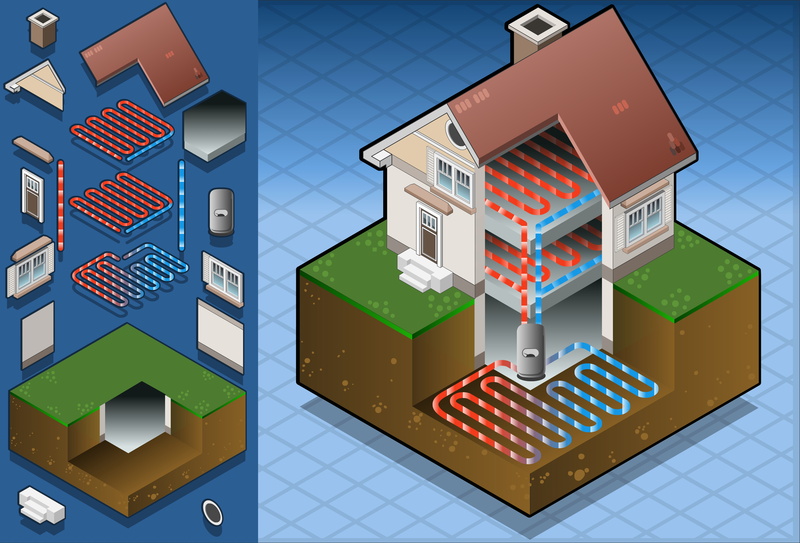
We may not get brutal Alaskan winters here in North Central Indiana, but when temperatures are down in the 20s, you’ll need to have a dependable and powerful heating system to keep your home livable. A gas furnace is a reliable standby for home heating, but boilers are also common and can deliver a similar amount of heating power.
What about a geothermal system? If you’ve considered the installation of a geothermal heat pump for your home, are you holding back because you aren’t certain if the heat from a geothermal system will be enough for winter comfort? It’s a logical question to ask, and you’ve come to the right people for answers. We’re local experts in geothermal HVAC in Warsaw, IN. In fact, we were one of the first contractors in the area to offer geothermal services to homes. We have the experience with geothermal heat pumps to answer any concerns you may have—and then help you with installation if you decide to geothermal is the best way forward.
The Heating Question With Geothermal
The first thing to understand about geothermal heat pumps is right in the name: these are types of heat pumps. A heat pump is a refrigerant-based HVAC system that pumps heat from one location to another. A heat pump in cooling mode removes heat from inside a house (this is essentially how a standard AC works). In heating mode, the process reverses and heat is brought into the house.
But right there is the tricky contradiction of the standard heat pump: it must draw heat from outside when in heating mode, but it will only work in heating mode when it’s cold outside. Where does it get the heat?
There is always some thermal energy in the air, no matter how cold. But a heat pump must work harder to extract enough heat from outside when the temperature is extremely chilly. This can make a standard heat pump inefficient in climates where the weather routinely dips below freezing.
Here’s where the geothermal difference comes in. A standard heat pump uses the outside air to extract heat, which is why they’re called air-source heat pumps. But a geothermal heat pump uses the heat in the ground, i.e. a ground-source heat pump. The temperature in the ground where the heat pump’s refrigerant loops are buried remains far above freezing all the time, no matter how cold the weather is. This makes geothermal heat pumps the most dependable type of heat pump when it comes to providing steady warmth.
You Need a Professional Opinion
The answer is, yes, a heat pump can take care of the heat for a house in an Indiana winter. That’s only a general answer since all homes are different. Not all are suited for geothermal installation. Before you make a choice about a geothermal heat pump for your year-round comfort, make sure you talk to our experts. We’re dedicated to this technology and we keep up to date with the latest developments. We can provide you with the informed opinions and facts you need to make the right decision about your home comfort.
